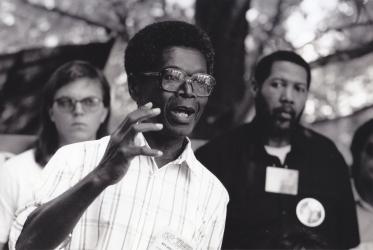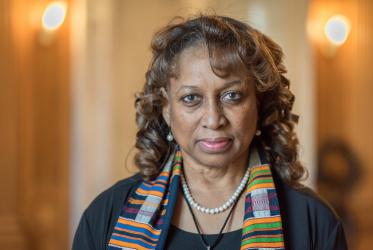Angola
Two Bantu kingdoms, the Kongo and the Mbundu, existed in the area now known as Angola, when the Portuguese arrived there at the end of the 15th century. The name Angola is derived from the name of the Mbundu king Ngola. The Portuguese colonial domination was marked by wars, the slave trade and oppression of the African people. Angola achieved its independence from Portugal in 1975, after a long liberation war which caused immense suffering. A protracted civil war followed, between the MPLA supported by the former Soviet Union, and UNITA supported by the USA and South Africa, that led to hundreds of thousands of displaced people, millions of refugees, and an estimated 1.5 million deaths between 1975 and 2000. The country continues to face huge problems of rehabilitation and reconstruction, aggravated by the problem of landmines and the incidence of HIV/AIDS. Angola is a major oil producer but the revenues hardly benefit the population because of corruption and greed of the elite. The churches have been deeply involved in peace and reconciliation, cooperating across denominational barriers of Protestant, Evangelical and Catholic. Two large churches, the United Methodist and the Anglican Diocese, are indirect members of the WCC, respectively through the United Methodist Church and the Church of the Province of Southern Africa. The Evangelical Alliance of Angola groups the Evangelical and Pentecostal churches. Together with the Charismatics, they represent about 10 percent of the Christians in Angola (2000).
More on Angola:
Ecumenical solidarity visit to Angola

An international ecumenical team of church representatives, so called "Living Letters", paid a solidarity visit to churches and ecumenical organizations in Angola from 18 to 22 July 2009. Read more about the visit to Angola...




